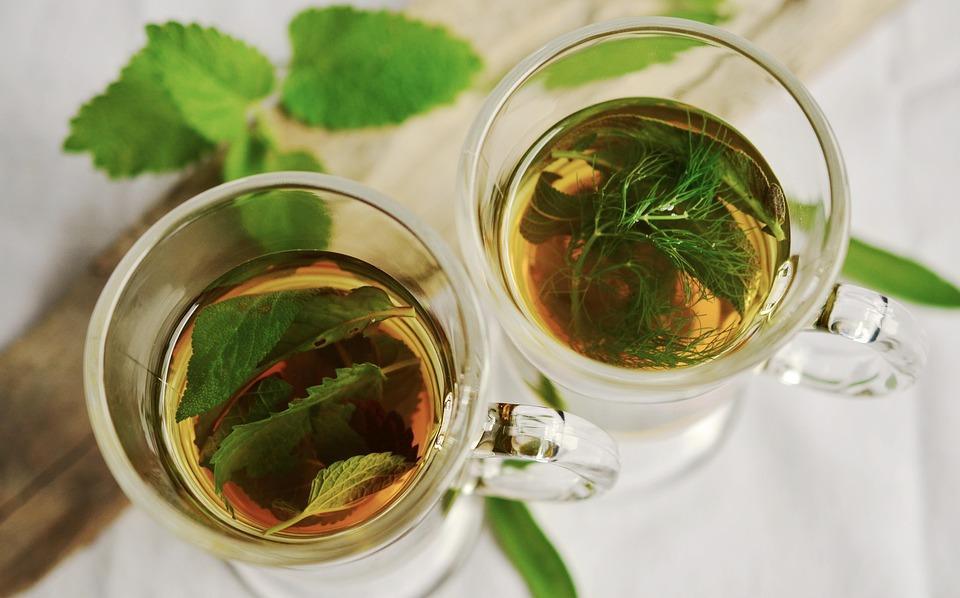10 Powerful Herbs for Natural Healing You Need to Try—this isn’t just a catchy title. It’s an invitation to explore the treasures of nature that can transform your health. Imagine reaching for a remedy straight from your garden or kitchen, one that’s been cherished for centuries. Herbs have been used for natural healing long before modern medicine took the stage, and they deserve a place in your daily life.
Herbs are more than just flavor enhancers; they’re potent allies in your quest for wellness. Each herb carries a unique story and a wealth of benefits. By incorporating these powerful herbs into your routine, you’re not just embracing natural healing; you’re cultivating a deeper connection with your body and its needs.
Let’s dive into these ten remarkable herbs, their healing properties, and how you can easily incorporate them into your life.
Contents
- 1. Turmeric: The Golden Wonder
- 2. Ginger: Your Digestive Dynamo
- 3. Peppermint: The Refreshing Soother
- 4. Echinacea: Your Immune Booster
- 5. Lavender: The Calming Herb
- 6. Holy Basil: The Stress Reliever
- 7. Chamomile: The Gentle Sleep Aid
- 8. Garlic: The Heart Protector
- 9. Milk Thistle: The Liver Guardian
- 10. Ashwagandha: Your Energy Booster
- Bottom Line
- FAQ Section
1. Turmeric: The Golden Wonder
Turmeric is often referred to as a superfood, and for good reason. This vibrant yellow spice is packed with curcumin, known for its anti-inflammatory and antioxidant properties. Turmeric is a powerhouse when it comes to fighting inflammation, which is at the root of many chronic diseases.
How to Use: Add turmeric to your smoothies, soups, or even your morning latte. You can also take it as a supplement if you prefer.
Benefits:
- Reduces joint pain
- Supports digestive health
- Enhances your skin’s glow
For more information on turmeric and its benefits, check out the National Center for Complementary and Integrative Health.
2. Ginger: Your Digestive Dynamo
Ginger isn’t just for holiday cookies; it’s a fantastic herb for digestive health. It has been used for centuries to alleviate nausea, bloating, and indigestion. The compounds in ginger help soothe your stomach and promote digestion.
How to Use: Grate fresh ginger into your tea, stir it into stir-fries, or enjoy it pickled.
Benefits:
- Eases nausea and vomiting
- Reduces muscle pain
- Helps with menstrual discomfort
Ginger is well-studied, and you can find more about its benefits on the Mayo Clinic website.
3. Peppermint: The Refreshing Soother
Peppermint is not just a refreshing flavor; it’s a potent herb for relieving headaches and digestive discomfort. The menthol in peppermint has a calming effect that can ease tension and help improve mental clarity.
How to Use: Brew peppermint tea or use peppermint oil for aromatherapy.
Benefits:
- Alleviates tension headaches
- Eases digestive issues
- Improves focus and concentration
You can learn more about peppermint’s medicinal properties from WebMD.
4. Echinacea: Your Immune Booster
Echinacea is your go-to herb when you feel a cold coming on. This beautiful purple flower has been shown to enhance your body’s immune response. It’s like having a shield against those pesky viruses.
How to Use: Brew echinacea tea or take it as a supplement when you feel under the weather.
Benefits:
- Reduces the duration of colds
- Boosts immune function
- Helps with skin health
For more in-depth information, the Cleveland Clinic provides excellent insights on echinacea.
5. Lavender: The Calming Herb
Lavender is more than just a lovely scent; it’s a powerful herb for reducing stress and promoting relaxation. Known for its calming properties, lavender can help you unwind after a long day.
How to Use: Use lavender essential oil in a diffuser, add dried lavender to sachets, or enjoy lavender tea.
Benefits:
- Improves sleep quality
- Reduces anxiety
- Promotes skin healing
Check out the benefits of lavender on the American Botanical Council.
6. Holy Basil: The Stress Reliever
Holy basil, or Tulsi, is revered in Ayurvedic medicine as a powerful adaptogen. It helps your body cope with stress and fosters balance. When life feels overwhelming, holy basil can be your ally.
How to Use: Brew holy basil tea or add it to your meals.
Benefits:
- Reduces stress and anxiety
- Supports heart health
- Boosts immunity
For more information on holy basil’s benefits, visit the National Institutes of Health.
7. Chamomile: The Gentle Sleep Aid
Chamomile is often associated with a good night’s sleep. This gentle herb is not only soothing but also helps with sleep disorders and anxiety. If you struggle with insomnia, chamomile may be your answer.
How to Use: Brew a cup of chamomile tea before bedtime.
Benefits:
- Promotes relaxation
- Supports digestive health
- Eases menstrual discomfort
Learn more about chamomile from the Herbal Medicine Research Center.
8. Garlic: The Heart Protector
Garlic is not just a culinary staple; it’s a powerful herb for heart health. Its active compounds can help lower blood pressure and reduce cholesterol levels, making it an essential addition to your diet.
How to Use: Incorporate fresh garlic into your cooking or take aged garlic supplements.
Benefits:
- Lowers blood pressure
- Improves cholesterol levels
- Strengthens the immune system
For detailed research on garlic, check out the World Health Organization.
9. Milk Thistle: The Liver Guardian
Milk thistle is often overlooked, but it’s a powerful herb for liver health. Its active ingredient, silymarin, promotes liver function and protects against toxins. If you’ve indulged a bit too much, milk thistle can help your liver bounce back.
How to Use: Take milk thistle supplements or brew it as a tea.
Benefits:
- Supports liver detoxification
- Protects against liver disease
- Promotes skin health
For more on milk thistle, visit Healthline.
10. Ashwagandha: Your Energy Booster
Ashwagandha is a powerful adaptogen that helps your body manage stress. It’s not only great for reducing anxiety but also boosts your energy levels and enhances overall vitality.
How to Use: Take ashwagandha powder in smoothies or capsules.
Benefits:
- Reduces stress and anxiety
- Enhances physical performance
- Improves cognitive function
Explore the benefits of ashwagandha on the Journal of Alternative and Complementary Medicine.
Bottom Line
Embracing the power of herbs for natural healing can dramatically enhance your health and well-being. These ten herbs—turmeric, ginger, peppermint, echinacea, lavender, holy basil, chamomile, garlic, milk thistle, and ashwagandha—are your allies on this journey. Incorporating them into your life is not just about remedies; it’s about nurturing yourself naturally.
Take a moment to reflect on which herb resonates with you. Start small—perhaps a cup of chamomile tea tonight or a sprinkle of turmeric in your next meal. Your body will thank you.
FAQ Section
Q: Can I take these herbs in supplement form?
A: Yes, many of these herbs are available as supplements. However, consult with a healthcare provider before starting any new supplement regimen.
Q: Are there any side effects?
A: While most herbs are safe, some may have side effects or interactions with medications. Always do your research and talk with a healthcare professional.
Q: How can I incorporate these herbs into my diet?
A: You can use these herbs in cooking, as teas, or in smoothies. Get creative!
Embrace the gifts of nature, and let these herbs guide you to a healthier, happier you.
Get Your FREE Natural Health Guide!
Subscribe now and receive our exclusive ebook packed with natural health tips, practical wellness advice, and easy lifestyle changes, delivered straight to your inbox.





